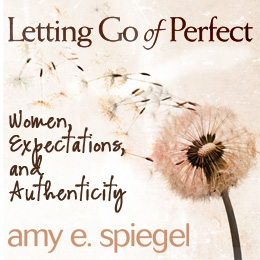Lately I feel like I might know how the cavemen felt, watching all the dinosaurs die off. Something that has always been around begins to fade into memory with only bones and fossils to remind us that it ever existed. I am speaking, of course, of the dying genre of romantic comedy. Most films purported to be of this sort are conspicuously lacking in either romance or comedy. Casual sex? Yes, by the truck loads. Humor involving casual sex? Indeed. But when it comes to the I-can’t-believe-he-just-did-that-for-her romance or the oh-crap-I-just-wet-my-pants-because-I’m-laughing-so-hard humor, well, not so much.
My first clue that the species might be endangered was Down with Love. Watching this movie felt a bit like seeing your grandmother in her underwear or hearing your pious Uncle Fred tell a dirty joke, and not a very funny one at that. Still I held out hope that this was an aberration, but after being burned again and again, I had begun to seriously doubt that the strongest were surviving. (All you have to do is sit through Knocked Up and Forgetting Sarah Marshall to see that Darwin obviously did not know film.)
There are those who would say that the death of the romantic comedy is hardly a loss, but I beg to differ. When my life is a bit dreary or just downright depressing, a little Jane Austen BBC-style can go a long way in lifting my spirits. There are those who would call this escapism and I will fully admit this is a danger to be avoided. But a well crafted romance can inspire, encourage, and even reprimand us for taking for granted one of God’s greatest gifts to mankind—romantic love. Our views of love are reflected, shaped, and then reflected back again by the powerful force of a good love story.
A few weekends ago, I watched two films back to back—Once and Broken English. One of these left me in awe of its simplicity and beauty. The other was like the third Oreo—it feels so good going down but the more the think about it, the more you regret having swallowed it. I think these two films make a great study in contrasts. Old school love is supposed to inspire us and make us better people, whereas the new school says if you sleep with enough people eventually you might luck out and find someone you can spend at least the next three months with. (Is my bias showing?)
On the surface, Once might seem far from the classic love story. It’s a bit darker, a bit sadder and the two main characters never actually “fall in love,” which in modern love story language translates “they never sleep together.” What they do is bring out the best in one another, challenge one another, and leave each others’ lives a little better off. They never show any physical affection for one another (they never even articulate their feelings) because to do so wouldn’t be in the best interest of either one of them, and they know this. They are tempted, but they refrain and in the end leave their friendship untarnished by regret. One of the biggest flaws in modern romance movies is that they tend to be peopled by characters whom you either don’t understand or really don’t care for. I can’t count the number of films I have seen where I am supposed to be rooting for the main characters, who are misunderstood, insecure, immature, etc. I wouldn’t let these people walk my dog, let alone date my daughter (granted, she is only four, but you get the idea).
This isn’t entirely true of the second film, Broken English but it isn’t far off either. This movie definitely fits more in the modern love story mold. Desperately (and I mean desperately) lonely girl, seeks love and companionship, and looks for love in all the wrong places. Parker Posey’s performance as Nora is amazing. You genuinely like her, want to see her happy, and definitely wish that she were your friend (and your size) so that you could raid her wardrobe. (Side note: wardrobe. It used to be that the heroines were beautiful despite their poverty, sometimes even despite their outward appearance, e.g. Jane Eyre. Then we had great clothes and good character, e.g. anything Doris Day. Now it seems like we are supposed to like the main character solely based on her clothing choices. But I digress.) The major flaw of Broken English is that you are simply supposed to take the filmmakers’ word for it that Nora has grown and become content with her singleness (during a brief holiday in Paris while searching for her lost lover). Not only that but you are supposed to take on faith the fact that this man is good for her simply because he has a foreign accent, dances badly, and is sad to leave her. Some foundation for true love. When Nora agrees to stay and “see what happens” with Julian you feel a hollow sense of victory. It’s like Cool Whip; they may try to convince you it’s just like whipping cream, and for making Jell-O salad it will do. But deep down inside, you know it’s just a cheap imitation of the real thing.






